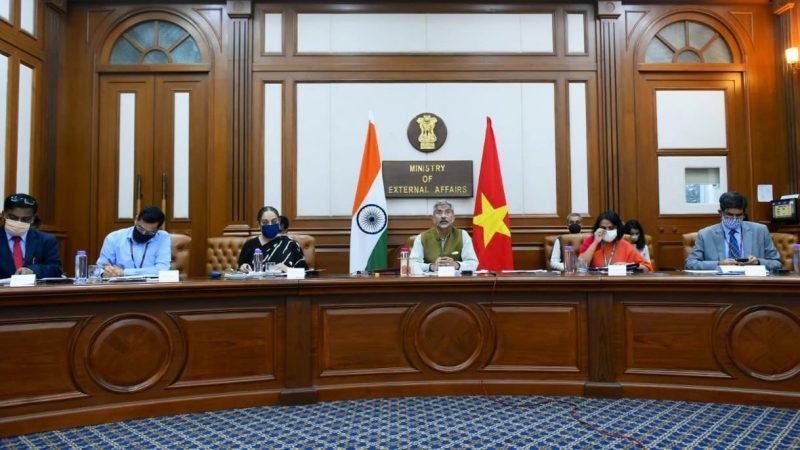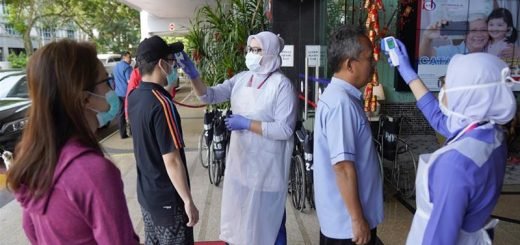17th India-Vietnam Joint Commission Meeting: New Momentum in the chase

The 17th India-Vietnam Joint Commission Meeting concluded on the 25th August, 2020. The meet focused on trade, scientific and technological cooperation shared between the two countries. The session was co-chaired by EAM Jaishankar and Deputy Prime Minister of Vietnam, Pham Binh Minh. India and Vietnam have shared a warm relation especially over oil exploration, agriculture and manufacturing. With India’s ‘Look East Policy’, Vietnam has emerged to be the leading partner in most cooperative ventures.
The Joint session dealt with numerous aspects also covering the domain of the pandemic. EAM stressed on the nature of the ‘Atmairbhar Bharat’ policy which aims at reviving the economy of the country and that Vietnam must intervene as a player to reap any benefits of the policy and also provide with desire policies to maintain the bilateral relations. Reminding the capacity building offered by the trade and commerce sectors of India, the nations pledged to commit themselves to projects such as Quick Impact Projects (QIP), ITEC and e-ITEC, SDGs, digital connectivity and heritage conservation. The Government of India has already approved 7 QIPs in water resource management in the Mekong Delta Region, Vietnam and 5QIPs related to the infrastructural development in the country. Apart from the QIPs, MoUs too was signed between the Sushma Swaraj Institute of Foreign Services and Diplomatic Academy of Vietnam which would allow better implementation of statecraft between the two countries.
The meeting also reviewed the ASEAN framework and EAM showed his support to Vietnam’s chairmanship of ASEAN in the following year. The chairmanship of Vietnam would further enable to strengthen regional relations. However, an interesting take of the whole meeting was regard to enhance the cooperation with regards to India’s Indo-Pacific Oceans Initiative, which was launched by Prime Minister Narendra Modi last year. The IPOI is built on the pillars of maritime ecology, maritime resources, capacity building and resource sharing, disaster risk reduction and management, science, technology and academic cooperation. The invitation presented to Vietnam could be viewed as a strategy to deal with ‘aggressive China’ who has been pursuing policies to increase activities in this area, intruding the exclusive economic zones of most South-East Asian countries. A statement released by the Ministry of External Affairs mentioned, “India and Vietnam agreed to enhance their bilateral cooperation in line with India’s Indo-Pacific Oceans Initiative (IPOI) and the ASEAN’s Outlook on Indo-Pacific to achieve shared security, prosperity and growth for all in the region.”
The meeting revisited the bilateral relations shared between them and this Joint Meeting should be seen in the light of providing a new charisma to closer cooperation between India and Vietnam.


















